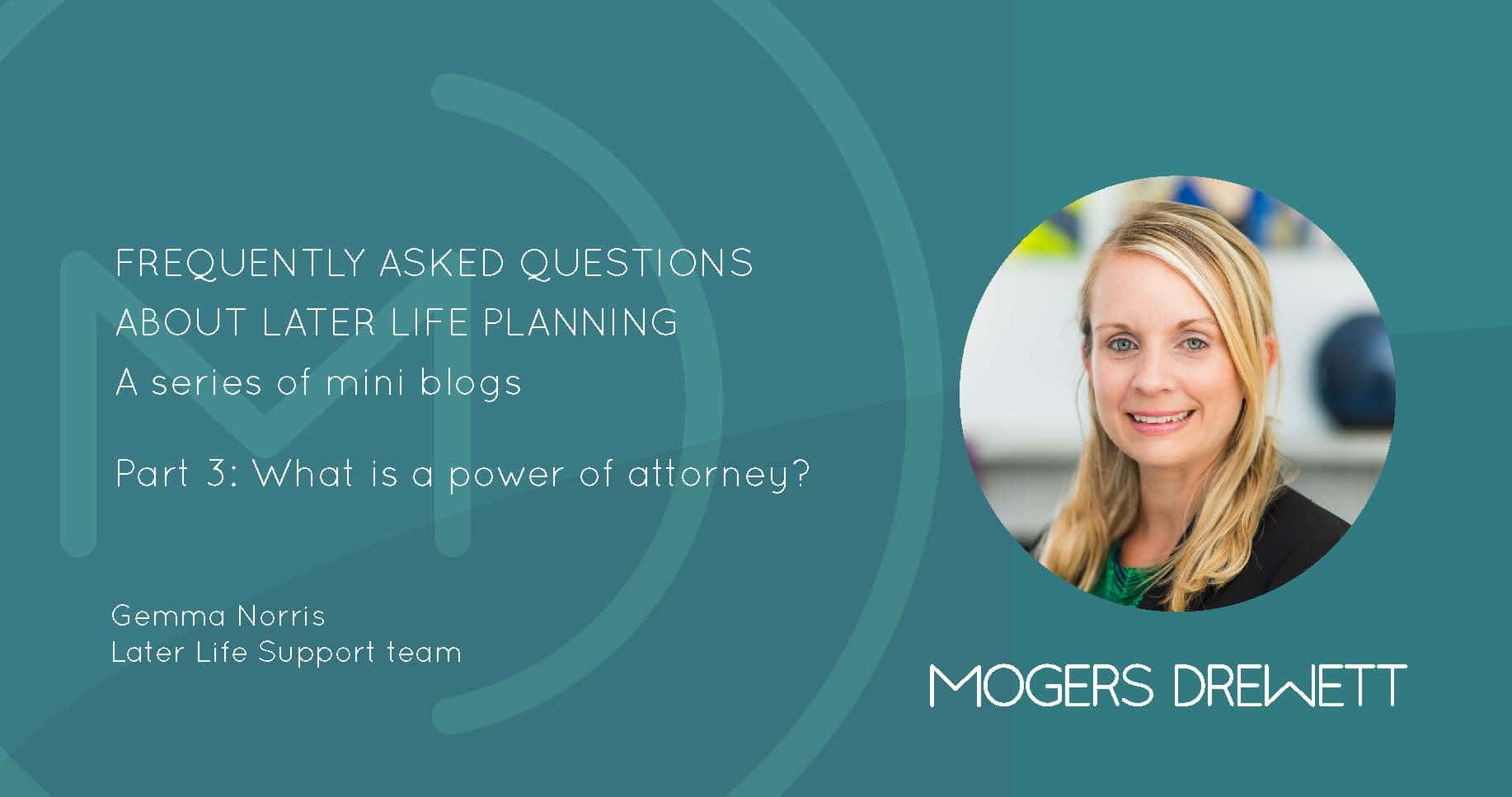FAQs About Later Life Planning – What is a power of attorney?

In the third mini blog in the series of FAQs About Later Life Planning, Gemma Norris explores the types of powers of attorney available and the difference between them.
A Power of Attorney is a legal document where you (the donor) appoint someone (your attorney/s) to manage and make decisions about your affairs in the event that you are unable to do so. There are different types of power of attorney for different purposes.
General Powers of Attorney
Intended for use on a temporary basis (e.g. you are away on holiday). Attorneys are appointed to act in connection with your property and financial affairs only. The document is no longer valid if you lose capacity.
Enduring Power of Attorney (EPA)
It has not been possible to make an EPA since October 2007. However, EPAs completed pre October 2007 are still valid. An EPA allows an attorney to act in connection with property and financial decisions only and does not extend to health and welfare decisions. Therefore, you may wish to consider completing an LPA in relation to your health and welfare. If an attorney has reason to believe the Donor is becoming mentally incapable of managing their affairs, the attorney must register the EPA with the Office of The Public Guardian (OPG). The registration process can take up to 8 weeks, during that time a situation could arise whereby the EPA is effectively “placed on hold” until registration completes.
Lasting Powers of Attorney (LPA)
There are two types of LPAs:
- LPA for property and finance – Grants your attorneys authority to manage your financial and property affairs. It can be used whilst you have capacity to make and understand decisions about your financial affairs. It is still valid if you lose the capacity to make and understand those decisions.
- LPA for health and care – Unlike the financial LPA, a health and welfare LPA can only be used when you have lost the capacity to make and understand decisions about your health and welfare.
Once completed (ie signed by all parties) the LPA is registered with the OPG at that point. This differs to the EPA registration process, which only occurs once the donor loses capacity.
One of the benefits of having an LPA in place is the reassurance of knowing that in the future, if you are no longer able to make decisions for yourself, you have appointed someone you know and trust to make those decisions for you, giving you and your loved ones peace of mind.
If you would like further information about putting an LPA in place, please contact our Later Life Services team on 01225 750 000
